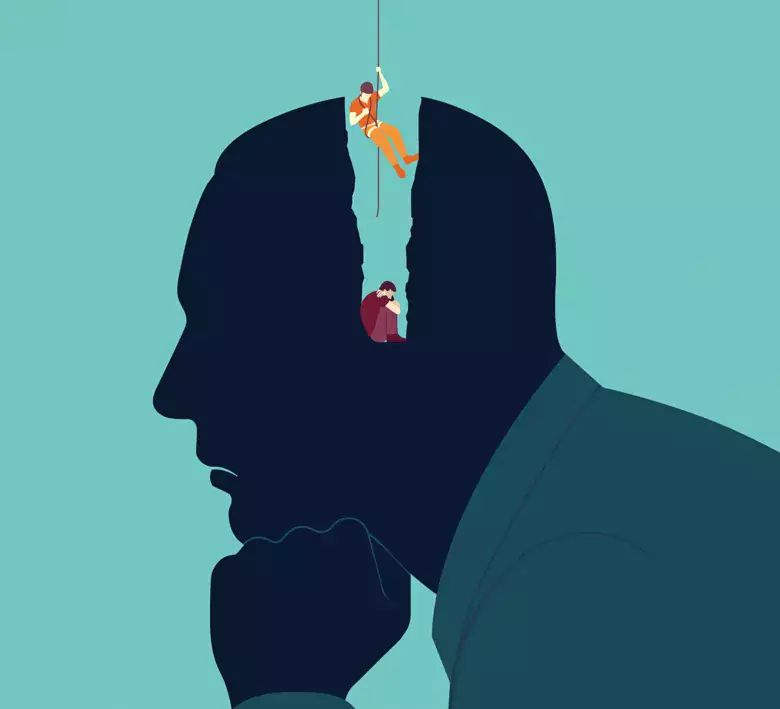My Services
Strategies for Those in Need Introduction
Suicide ideation can be a distressing and overwhelming experience, and it is important to seek professional help if you are struggling with these thoughts. As a therapist, I have worked with many individuals who have experienced suicidal ideation, and I believe that there are effective strategies that can help manage these thoughts.
Understanding Suicide Ideation
Suicide ideation can have many different causes, including mental health conditions such as depression, anxiety, and PTSD. It can also be triggered by life events such as loss, trauma, or major life changes. For some individuals, suicidal thoughts may be related to feeling trapped, hopeless, or overwhelmed by their circumstances. Regardless of the cause, suicide ideation can be a serious concern that requires professional intervention.

The Role of Therapy in Managing Suicide Ideation

Therapy can play a crucial role in helping individuals understand and manage suicidal ideation. In therapy, individuals can explore the underlying causes of their suicidal thoughts, and develop coping mechanisms and strategies for managing these thoughts. Therapists can provide a non-judgmental and supportive space where individuals can talk about their experiences and emotions, and work through any feelings of shame or guilt they may have.
Therapy can also provide individuals with a sense of purpose and meaning in life, which can be an important protective factor against suicidal ideation. By working with a therapist, individuals can develop a greater sense of self-awareness, self-compassion, and resilience, which can help them navigate life’s challenges with greater ease and grace.
Strategies for Managing Suicide Ideation
1. Seek professional help: If you are experiencing suicidal thoughts, it is important to seek professional help from a mental health provider. Therapy can provide a safe and supportive space for individuals to explore the underlying causes of their suicidal thoughts, and develop coping mechanisms and strategies for managing these thoughts.
2. Build a support system: It can be helpful to build a support system of friends and family who can provide emotional support and practical assistance when needed. This support system can help individuals feel less isolated and provide a sense of community and belonging.
3. Practice self-care: Self-care can be an important way to manage stress and promote mental health. Engaging in activities that promote relaxation and self-care, such as yoga, meditation, or hobbies, can help individuals manage stress and improve their overall wellbeing.
4. Develop a safety plan: A safety plan is a written plan that outlines steps that individuals can take when they experience suicidal thoughts or feelings. A safety plan may include strategies for managing stress, identifying supportive people to talk to, and knowing when to seek professional help.
5. Engage in evidence-based therapies: Evidence-based therapies, such as Cognitive Behavioral Therapy (CBT) or Dialectical Behavioral Therapy (DBT), can help individuals develop coping strategies, build resilience, and foster a greater sense of meaning and purpose in their lives. These therapies can also help individuals challenge negative thought patterns and beliefs that may contribute to suicidal ideation.
Conclusion
Suicide ideation can be a distressing and overwhelming experience, but it is important to remember that there are effective strategies that can help manage these thoughts. Seeking professional help, building a support system, practicing self-care, developing a safety plan, and engaging in evidence-based therapies can all be important strategies for managing suicidal ideation. As a therapist, I am committed to providing a non-judgmental, empathetic, and supportive space for individuals who are struggling with suicidal ideation. Together, we can work towards developing effective strategies for managing these thoughts and promoting positive change.
Fill the form below
Contact Me Today
I offer a free, no-obligation initial consultation. You will get a chance to discuss your concerns and goals. This session will help you understand therapy and determine if it's right for you. In a supportive and non-judgmental environment, we'll explore solutions to your challenges. No commitment is required after the consultation. I'm dedicated to making therapy accessible and affordable. Reach out to schedule a consultation and take the first step towards better mental health.
Simply enter your contact details and I will call you back to schedule your free initial cosnultation.


